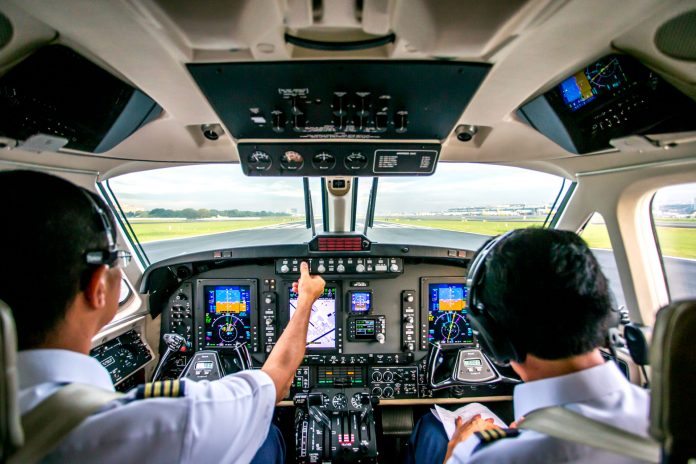
MANILA – With Boeing’s estimated global demand for pilots expected to soar by around 800,000 in the next 20 years, Philippine aviation leaders are gearing up to ensure locally trained talents don’t get left behind.
Speaking with ABS-CBN News at the sidelines of the First Aviation Academy inauguration in Subic on Thursday, Philippine Airlines (PAL) president Jaime Bautista said they have enough pilots, but cautioned facing a shortage of seasoned aviators as they retire.
The flag carrier currently employs 1,068 pilots. Eighty of them are women.
“It is growing. In fact (in) our existing pilot aviation school, we have more than 10 percent of lady cadets,” Bautista said.
PAL is mulling over hiring 20 pilots this year.
“We continue to get the regular training. Every 6 months, they do recurrent training. And of course, we see to it they are happy earning with us,” Bautista said.
In a separate interview with ABS-CBN News, Cebu Pacific (CEB) corporate communications director Charo Lorgarta-Lagamon said the demand for pilots worldwide is not new and airlines have been putting in place measures to retain a good number of pilots.
“At Cebu Pacific, this includes constant hiring of new pilots, as well as training and development of the current pilot corps. We also launched a multimillion-dollar Cadet Pilot program, where we hope to hone 250 new pilots via a ‘study now, pay later scheme’,” she said.
The budget carrier is currently screening a sixth batch of cadet pilots from about 8,000 applications they have received online.
Lorgarta-Lagamon added they constantly review their internal policies to provide their pilots with professional development to ensure they are retained within their corps.
Domestically, MacroAsia Chairman Joseph Chua said the aviation market in the Philippines is growing. He largely attributed it to President Rodrigo Duterte’s massive “Build, Build, Build” infrastructure program.
There are over a dozen aviation schools in the Philippines and the addition of the ambitious Subic-based First Aviation Academy to the growing roster aims to take things up a notch with its featured state-of-the-art fleet of brand new TECNAM planes with full-glass cockpit electronic instrumentation and the REDBIRD MCX and TD2 G-1000 simulators, which aim to hone airline-ready pilots after 12 months.
Tuition at the Academy is at P4 million, which include food and lodging.
The FAA was 2 years in the making and is a joint venture between the Lucio Tan-owned MacroAsia Corporation and the Philippine Transmarine Carriers or PTC Group.
The first batch of 60 aspiring pilots will begin classes this April. Graduates from the academy will have completed
a Private Pilot License (PPL), Instrument Rating (IR), Multi-Engine Rating(MER), Commercial Pilot License, and Airline Transport Pilot License Ground Theory. Top graduates, meanwhile, will also have a chance to become flight instructors.
The school is open to accepting foreigners, but PTC Holdings CEO Gerardo Borromeo said the priority would be fulfilling what is needed locally. (ABS-CBN News)







